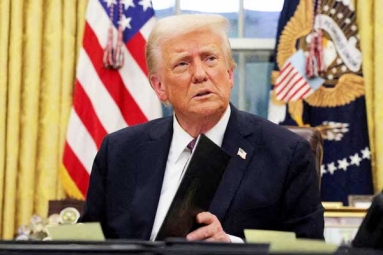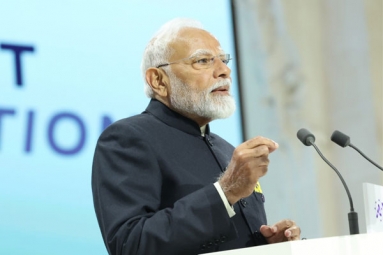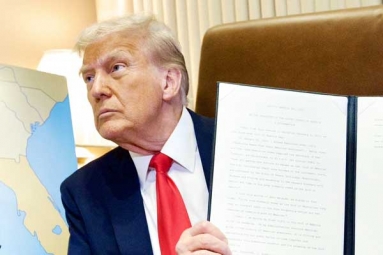
Britain has voted to leave the European Union to take better control of its economy and its borders, destroying the stability of continental unity forged after World War II. 'Leave' votes had crossed the 16.8 million mark, needed to win after 374 out of 382 regional results had been declared, making it mathematically impossible for "Brmain" to win.
The BBC reported on Friday, after all the votes had been counted Britain has voted to leave the European Union by 52 percent to 48 percent. The outcome could lead the country to an uncertain path of financial distress. World financial markets dived as the vote headed for a Brexit outcome. Sterling suffered its biggest one-day fall of 9.4 percent against the dollar on market, fears the decision, that it will hit investment in the world's 5th largest economy. Sterling has tumbled to its lowest in 31 years.
This will force minimum two years of Historic Divorce proceedings with the EU and will put London into question as the Global Financial Capital. Prime Minister David Cameron will be forced to resign, though he has already pledged to stay irrespective of the results, during the campaign.
There was no immediate feedback from The Bank of England. Global policymakers are prepared for actions to stabilize markets, with Japanese Finance Minister Taro Aso, promised to "respond as needed" in the currency market.
There was an Euphoria among Britain’s Eurosceptic forces, claiming a victory that styled as a protest against the British political leaders, Business giants and foreign leaders including Barack Obama who wanted Britain, to be in the Bloc. Nigel Farage, leader of the eurosceptic UK Independence Party said, "Dare to dream that the dawn is breaking on an independent United Kingdom." He added, "If the predictions are right, this will be a victory for real people, a victory for ordinary people, a victory for decent people ... Let June 23 go down in our history as our independence day."
But in the end, concerns over uncontrolled immigration, loss of sovereignty, remote rule from Brussels and a protest vote from working class northern voters appear to have trumped almost unanimous warnings of the economic perils of going it alone. John McDonnell, finance spokesman for the opposition Labour Party, which had favoured a Remain vote, stated, "People are concerned about how they have been treated with austerity and how their wages have been frozen for about seven years,"
Also Read: Thousands gathered to commemorate the UK Lawmaker Jo Cox
By Prakriti Neogi










